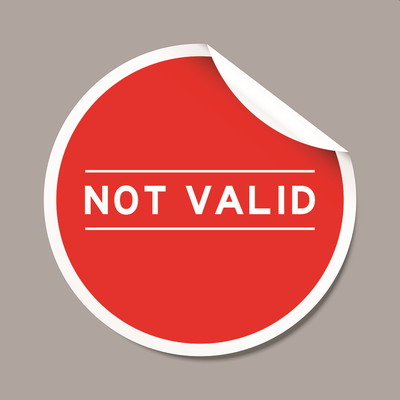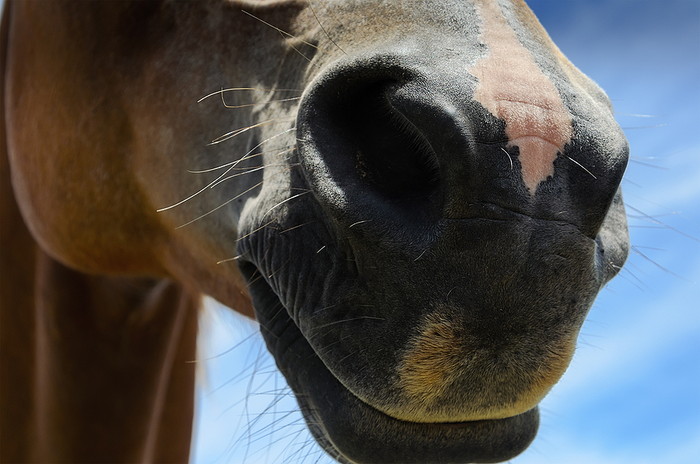 The potential thrill gleaned from placing a bet comes through the uncertainty of the outcome – will your betting balance be receiving a welcome boost? Or will it be a case of skulking back to the drawing board? And in the vast majority of cases, your bookmaker of choice will indeed settle your bet as either a winner or a loser. That is not always the case though. For, whilst exceedingly rare, there are occasions where a betting operator may instead opt to cancel your bet completely.
The potential thrill gleaned from placing a bet comes through the uncertainty of the outcome – will your betting balance be receiving a welcome boost? Or will it be a case of skulking back to the drawing board? And in the vast majority of cases, your bookmaker of choice will indeed settle your bet as either a winner or a loser. That is not always the case though. For, whilst exceedingly rare, there are occasions where a betting operator may instead opt to cancel your bet completely.
But what exactly is a cancelled bet, why might betting companies take this action and, crucially, what does it mean for the person who placed the bet?
What Exactly Is a Cancelled Bet?
 When placing a bet, most punters are aware that several outcomes exist which will result in their bet being made void and their stake is returned. A non-runner in a horse race is one example; another is backing a player to score the first goal in a given football match, only for the selected player to start on the bench and still be on the bench at the time the first goal is scored. And really these void bets make perfect sense, as in the case of both the non-participating horse and footballer, neither bet had a chance to win and so the stake is rightly returned to the punter.
When placing a bet, most punters are aware that several outcomes exist which will result in their bet being made void and their stake is returned. A non-runner in a horse race is one example; another is backing a player to score the first goal in a given football match, only for the selected player to start on the bench and still be on the bench at the time the first goal is scored. And really these void bets make perfect sense, as in the case of both the non-participating horse and footballer, neither bet had a chance to win and so the stake is rightly returned to the punter.
Whilst usually being settled in the same manner as a void bet, that is to say that the stakes are returned, cancelled bets belong in a slightly different category. Whereas the reasons for a bet being made void are almost immediately apparent, the rationale behind a bet being cancelled may not be so obvious.
So, to first answer the question in the title of this article, “Can bookies cancel a bet without permission?”: yes, they can. And they may do so for a variety of reasons.
Why Might a Bet Be Cancelled?
Situations which result in a bet being cancelled vary quite widely; from unavoidable events to errors on the part of the bookmaker, and on to suspected skulduggery. If at any point you log in to your betting account and note that one of your bets has indeed been cancelled, it will most likely be due to one of the following reasons.
Delayed Events/Change In Venue

When placing a bet on any sporting event, the date and location are factored into the prices on offer. Any change in where or when the event takes place will therefore leave your bet in danger of being cancelled.
Why do the date and location make such a difference you might ask? Taking a football game as an example, a change in date may well result in significant alterations to the predicted starting line-ups, for example a star striker might not be quite fit for the initial date but may recover in time for the rescheduled fixture. Or consider a European game originally set to be played in a hostile stadium, then being switched to a behind-closed-doors neutral venue. Clearly the initial set of prices will no longer reflect the circumstances under which the match will actually be played. As such all bets placed at the original prices will most likely be cancelled.
One important thing to note here is that whilst the vast majority of bookmakers will immediately cancel all bets should the venue be altered, the rules regarding a change in date vary quite widely from firm to firm; some state that bets will stand as long as the event takes place within the same week as the initial date, others opt for within two days, and others are stricter still in setting 12 hours as the cut-off point. Should a game be delayed for whatever reason, the best advice is to log in to your account and check the status of your bet or contact customer services at the bookie in question to avoid (or at least become aware of) any potential disappointment.
Abandoned Games

Related to the above are those events which are abandoned after they have begun, which might include, for example, a football game being called off due to inclement weather or serious crowd trouble. Unless the match is resumed and played to a conclusion within an acceptable time frame (which will again be stipulated in the bookmakers’ terms and conditions), the majority of bets will be cancelled. The exceptions are those markets where a result may have already been determined, such as the first goal scorer or both teams to score in the match.
Palpable Error
 Like the rest of us, bookmakers and their employees are not infallible. From time to time they do make mistakes – be that down to human error or technical glitches. And whilst it would be nice for punters to be able to take advantage of such glitches with impunity, sadly this is not the case. Should a bookmaker spot a glaring error, be that in the specific wording of a particular bet, or more commonly with the prices they have made available, they will almost certainly cancel any bets placed under these incorrect conditions or at the wrong odds – and they are well within their rights to do so.
Like the rest of us, bookmakers and their employees are not infallible. From time to time they do make mistakes – be that down to human error or technical glitches. And whilst it would be nice for punters to be able to take advantage of such glitches with impunity, sadly this is not the case. Should a bookmaker spot a glaring error, be that in the specific wording of a particular bet, or more commonly with the prices they have made available, they will almost certainly cancel any bets placed under these incorrect conditions or at the wrong odds – and they are well within their rights to do so.
Falling into a category known as “palpable error”, examples include wording or grammar mistakes, such as “under 25 goals” instead of “under 2.5 goals”, or an incorrect start time or date – with it not being completely unheard of for a bookmaker to offer odds on an event which has already concluded. We would all be rich if able to bet once the result was known, and needless to say bookmakers will simply cancel all such bets as and when such an error comes to light.
Turning next to prices; many punters may believe that a price taken online or written by a cashier on a betting slip is legally binding. But unfortunately, this is not the case. Spotting 10/1 about an outcome which is listed as 1/10 with all other companies may seem exciting at the time, but when something seems too good to be true it usually is.
You may manage to sneak such a bet past a cashier or the online bet acceptance software, but your prospects of being paid out at this price are approximately zero – as found out by English football punter in 2016. At some point, pricing errors will be noticed and the bet will either be cancelled or, in the event that it wins, bookmakers may offer to pay out at the correct odds, which will often be substantially less profitable to the punter.
Suspected Match Fixing

Any notion of underhand activity including match fixing or any other form of corruption is also likely to lead to the cancellation of bets. Should suspicions come to light following the conclusion of an event, betting companies are likely to withhold all winnings until they are satisfied that no manipulation or rigging has taken place. In the event that the match or event is determined to have been the subject of corruption, all bets will be cancelled, with the return of stakes then being at the discretion of the company and potentially only then after the conclusion of any possible criminal investigation.
Thankfully a relatively rare occurrence in top-level sport, match fixing is more likely to occur in the more susceptible realms of lower league football or more niche sporting events – where the potential financial rewards are that much greater relative to the income of the players involved. Having said that, higher-profile events have been affected over the years, with the sport of tennis having been particularly hard hit in recent times.
On a positive note, online betting operators are very effective at flagging up the small number of dubious events and creating a trail back to the individuals involved. And given the suspicious betting activity they inevitably involve, fixed events tend to stand out like a sore thumb – be it the outcome of a specific game or a speciality betting market.
In such circumstances a company may opt to immediately suspend all betting on the event, cancelling and refunding all bets. Alternatively, they may allow the event to play out and take retrospective action, being likely to retain all stakes and winnings until satisfied as to whether any corruption has in fact taken place.
One important point to note is that should a company opt to cancel bets on a specific betting option, for example a team to win 2-0 or a tennis player to win in straight sets, they will almost always cancel bets on the entire market. Refusing bets on an outcome they believe to be pre-ordained, whilst happily accepting bets on all other eventualities would be highly questionable from a moral standpoint and would not sit well with gambling regulators.
In addition, should you place a losing bet on a match which subsequently turns out to have been fixed, you may have a chance to receive your stake back. Whilst not listed as the official policy of most betting companies, many will be keen to be seen to be doing the right thing under such circumstances.
Use of Multiple Accounts

In an effort to gain an edge over the bookmakers, some users may opt to open more than one account with the same firm – using not only their own details but those of their spouse, another family member, friends or others. Reasons for doing this generally are two-fold. Firstly, bettors may be looking to take advantage of a company’s new player offer or regular promotions. And secondly, the use of multiple accounts may be an effort to circumvent a company’s maximum pay-out restrictions. Whatever the reason, should a company get wind of multiple account use – and they have many ways in which to do so, including IP address and bet tracking – then all bets associated with such accounts are likely to be cancelled.
Insider Trading

Contained within the terms and conditions of most bookmakers is a stipulation that bets may not be placed by individuals who are participating in the event on which they are attempting to place a bet – “participating” being a catch-all term to refer to players, owners, trainers, jockeys and so on, or anyone directly associated with the horse/team/individual taking part in the event in question. Any such bets which are placed and subsequently discovered will be cancelled.
Inside Information

Certain individuals, whilst not directly linked to the event on which they are betting, may seem to be “in the know” about certain trainers, jockeys, players and so on. A successful betting record centred around runners from a specific yard or ridden by a certain jockey may be a suggestion of betting upon inside information. Whilst frowned upon by bookmakers, such activity can be difficult to prove and is more likely to result in severe stake restrictions or account closures, as opposed to the cancellation of bets which have already been placed.
Only in the event that reasonable evidence existed that a bettor had acted upon information which they knew gave them an unfair advantage over the market, would a bet be cancelled. An example of this could be someone receiving a tip from a phone company employee regarding the voting for a reality TV show. This is again notoriously difficult to catch at the time but has been retrospectively discovered and acted upon in the past.
Related Contingencies

Our final category is not a bet cancellation as such but does nevertheless come up relatively frequently in betting discussions and is worth being aware of. The theory of related contingencies belongs in the realm of accumulator betting and is best explained by the use of a couple of examples.
Consider a double on 5/1 shot Tiger Roll to win the 2019 Grand National and Anthony van Dyck to win the Derby of the same year at odds of 13/2. In this instance, each of the events can be described as independent, that is to say the outcome of one has no bearing on the outcome of the other. As such the return of the double would simply be calculated by multiplying the two odds together. £10 at 5/1 returns £60, £60 at 13/2 then returns £450. Very nice!
But what if the 5/1 price referred to Mohammed Salah scoring the first goal in the Liverpool versus Manchester United game, with the 13/2 being the price for Liverpool to win the same game 2-0. Would it be fair in this instance to simply multiply the odds together as in the horse racing example? It would not, as these two events are clearly related – if Mo Salah scores the first goal, it automatically becomes that much more likely that Liverpool will win the game 2-0. On occasions such as this, a special double price will be offered in a bet called a Scorecast, which in this example would be more likely to be in the 25/1 to 30/1 range, rather than the 44/1 of the straight double.
In practice, related contingencies will almost always be flagged up at the point of the bet being placed. There are however occasions when they do slip through the net, as was the case with two disappointed Rugby League punters in 2019.
Can a Company Cancel a Bet to Protect Profit?

Whilst all of the above seem like reasonable reasons to cancel a bet, what about the instance where a company accepts a large bet, only to later decide that actually they don’t want to take on such a large liability after all. Are they permitted to cancel a bet under these circumstances?
The first thing to state with this scenario is that it is extremely unlikely to occur. All bets must be approved by the bookmaker at the point of acceptance, be that in a shop or online. And all bookmakers have a set of rules relating to individual sports and events, and the size of liabilities they are happy to accept. Any bets which threaten to exceed these liabilities will either be immediately refused at the point of placement or referred to the company’s trading room in order for a decision to be made.
And since the Gambling Act of 2005, once a bet has been accepted it becomes a legally binding contract between the bookmaker and the bettor. So – provided it does not in any way contravene the terms and conditions of the operator – a bookmaker may not simply cancel a bet because it no longer wishes to take on the liability. Or at least that is the theory.
And in the instance where a bet is written down or registered online, a bookmaker would have little chance of avoiding the payment of any winnings. A large bet placed over the phone did however recently draw a huge amount of controversy when there was confusion over the amount placed. The bookie was seemingly happy to accept a £13,000 bet… until the bet won and they then realised the punter had only really wanted a bet of £1,300.
The lesson here is that if there is any possible doubt as to the terms of a bet, it is in the punter’s interest to achieve absolute clarity at the point the bet is being placed. That said, this decision does seem a little harsh, and it would be interesting to note what the outcome would have been had the bet lost and Mr Longley attempted to claim the bulk of his lost stake back.
What to do if Your Bet is Cancelled?

Ideally any betting company should make an effort to inform customers of a cancelled bet via email in advance of the event taking place, preferably providing a reason behind the cancellation. However, this does not always happen, and it may not be clear as to exactly why the bet has been cancelled.
This is clearly an unsatisfactory situation for the bettor, but there are routes to go down in order to obtain an answer, and potentially dispute the decision. In most instances a quick chat with customer services – be that via phone, email or a Live Chat facility – will provide a clear explanation. In the event that you are unable to obtain an explanation, or are unsatisfied with the justification given, there are further avenues to explore.
Firstly, you must submit a complaint via the betting company’s official complaints process, after which point the betting company has eight weeks in which to respond. And for those still unhappy with the resolution the Independent Betting Adjudication Service (IBAS) is a Gambling Commission-approved service set up specifically to deal with all betting-related disputes.
